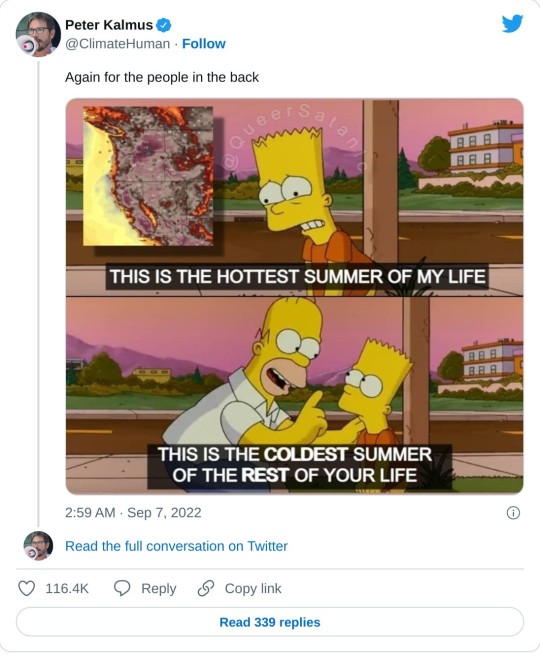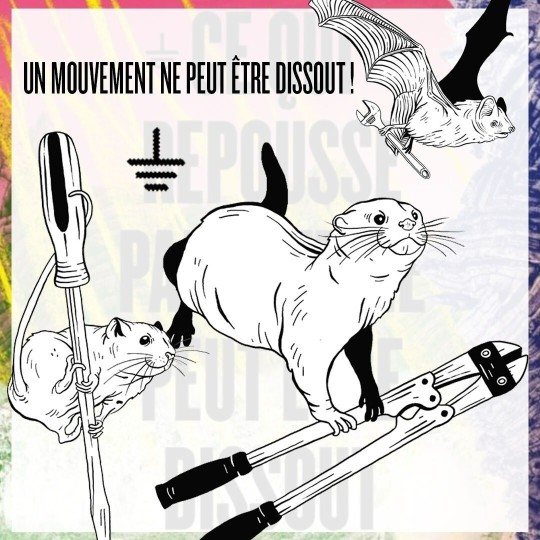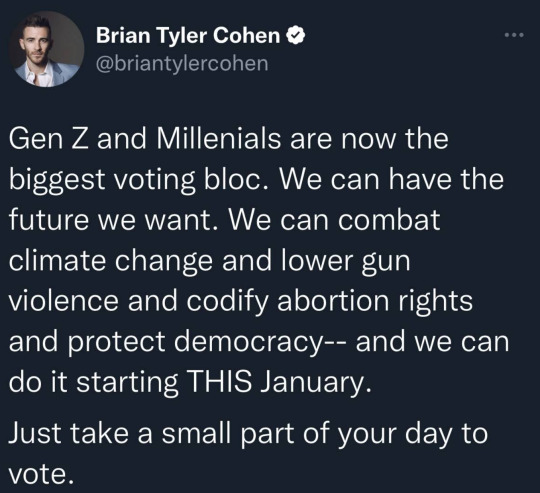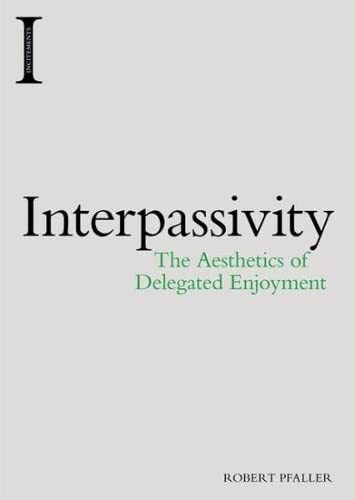#climate reform
Text

#us politics#2022#twitter#tweet#peter kalmus#climate crisis#climate emergency#climate reform#global warming#science#trust the science#heat wave#natural disasters#draughts
795 notes
·
View notes
Text
Ocean heat content, global sea levels and greenhouse gas concentrations all reached record highs in 2021, according to the State of the Climate report published Wednesday.
The Big Picture: The annual report showcases compelling scientific evidence that climate change has global impacts and shows no sign of slowing, said Rick Spinrad of the National Oceanic and Atmospheric Administration, which led the study.
Our Thought Bubble: The ocean heat content findings are a sign of a planet that is absorbing far more heat than it is releasing back into space.
• The oceans are absorbing the vast majority of the extra heat trapped by greenhouse gases, which were also at the highest level on record last year.
Why It Matters: Ocean warming is increasingly tied to extreme weather and climate events.
Worth Noting: The global average sea level rose to a record-high for the 10th consecutive year.
• The global average sea level was about 3.8 inches higher in 2021 than the 1993 average, when the satellite measurement record began.
1 Big Thing: Earth's warming trend is continuing, with 2021 among the six warmest years since records began in the mid-to-late 1800s, the report found.
• The past seven years (2015–2021) were the seven warmest years on record.
The Bottom Line: "With many communities hit with 1,000-year floods, exceptional drought and historic heat this year, it shows that the climate crisis is not a future threat but something we must address today as we work to build a Climate-Ready Nation — and world — that is resilient to climate-driven extremes," Spinrad said in a statement.
#us politics#news#axios#2022#global warming#climate emergency#climate reform#climate change#climate crisis#ocean temperature#State of the Climate#National Oceanic and Atmospheric Administration#NOAA#Rick Spinrad#2021
86 notes
·
View notes
Text
god a few of the notes on that post about leather are so
“then just stop wearing leather OR pleather!!! nobody NEEDS leather!!!”
okay, I’ll bite: what are we supposed to make shoes out of?
I don’t want to wear plastic clothing. period. if it’s at all possible to avoid. call me crazy, but I don’t consider destroying habitats on a massive scale via microplastic runoff in water and non-biodegradable plastic waste in landfills “more humane,” to animals OR people. I recognize that a lot of people don’t have the luxury of that choice, because synthetics are often cheaper, and I would never judge those individuals for it. but fortunately, I do, and that’s the choice I’ve made
so that leaves the natural materials that are currently commercially viable. leather and fur are out, and by strict v*gan definitions, so are wool and silk. plant-based fibers it is, then!
I live in Massachusetts, USA. let me just lace up my canvas sneakers to go out in the next February blizzard
and I’m sure people who work dangerous jobs like construction will love the sturdy protection of hemp slip-ons
be v*gan if you want to (censoring to avoid tags); I get that it’s usually coming from a place of compassion even if I don’t agree on the execution. but for gods’ sakes, don’t be this out-of-touch. just like I know that not everyone will agree with my personal decisions on how to live the most ethical life I feel I can, please respect that other people’s realities may look different from yours
#'but leather has environmental issues too!!!' yeah a lot of industries do right now. we need to REFORM them IMO#the solution is not Plastic Everything#mini-rant#textiles#literally there was a whole Failed Commune here in MA in the 1850s demonstrating that wearing only plant fibers#is not viable in cold climates#if you won't listen to the MANY INDIGENOUS PEOPLE saying this at least listen to the white girl history nerd
692 notes
·
View notes
Text

Reform strikes me as merely begging.
I’m most concerned with the structure of everyday life, the repression faced on a day to day basis. The confrontation with control that occurs in everyday navigation of the worlds of work and consumption. It really doesn’t matter who is president, or even the police. It matters that there are presidents and police.
It doesn’t matter who they are as individuals, what matters is the social roles and that they exist at all. Sure there are individuals who prop up these controls, commanders who initiate the cybernetic systems. But their replacement solves nothing. Nothing changes without obliterating the category.
Totalitarianism has been democratized, dictatorship of the populace. Everyday I feel confronted by this system. But this system is composed of people, people who fill these roles. At times I feel waves of nausea when dealing with masses of people. In small dosages people are fine enough. But when in a herd they are overwhelming.
Everyday we go about our routine, live our daily lives. All the while our selves and spirits are crushed by work, consumption, and the force of law. More and more of our lives are under surveillance and harnessed by technology. We are given nearly meaningless social roles to inhabit, as our ability to create our own meaning is crushed. The soil is eroded. The oceans rendered lifeless.
Civilization is a continuous onslaught. At times I want to escape, go become a hermit. But this is no escape, every place is finally overwhelmed in a protracted war of attrition being waged by civilization, against each individual. Even as I want escape, I know it is impossible. Conflict is the only possibility.
— Jason Rodgers
#jason rodgers#quote#capitalism#climate crisis#totalitarianism#abolish the police#abolish the state#reform
21 notes
·
View notes
Photo









First Reformed (2017) dir. Paul Schrader
#first reformed#paul schrader#ethan hawke#amanda seyfried#a24#a24 movies#a24 films#film still#movie stills#screencaps#my caps#caps#2010s movies#2010s films#religion#religious movies#climate change#upstate new york#protestant#first reformed 2017#filmedit#movieedit
501 notes
·
View notes
Text
youtube
Art in the Pre-Apocalypse | Jacob Geller
#climate crisis#Final Fantasy XVI#On the Beach#SEASON: A Letter to the Future#Umurangi Generation#First Reformed#How to Blow Up a Pipeline#Video analysis
36 notes
·
View notes
Text
Why is it that I want to see the Ancients all in vacation/beach outfits? Like they all decided to take a vacation to the Tropical Soda Islands or something?
I know in canon it probably wouldn’t happen, considering we already have a Tropical Soda Islands vacation costume set, but regardless I want to see it
#like legit I don’t know where this thought came from#but I need it#cookie run#cookie run kingdom#ancient cookies#pure vanilla cookie#hollyberry cookie#dark cacao cookie#golden cheese cookie#white lily cookie#or should she be replaced with Dark Enchantress Cookie? Like they go after the DE storyline ends and she’s reformed#eh might as well tag her too#dark enchantress cookie#I feel like Hollyberry would have the best fit considering she’s from a climate actually similar to the islands#I feel like Dark Cacao would be the one with a hat and sunglasses and loads of sunscreen that stays in the shade#does that make sense?#random stuff
30 notes
·
View notes
Text
Don't get me wrong, the fusion energy breakthrough is really cool from the angle of, like, scientific progress, but...



#...but it'd take approx. 13 billion of these fusion reactions to equal the output of hoover dam... for *one* year#all im saying is that WE ALREADY HAVE SOLUTIONS TO FOSSIL FUEL DEPENDENCY#solar and wind and hydroelectric could power the whole damn planet if we wanted#the solution to fossil fuel dependency is raidcal and sweeping reform to sustainable energy sources across the globe#nuclear fusion#fusion#science news#climate change#climate crisis#sustainable energy
7 notes
·
View notes
Text
love finding out that in 2021 the USA was the only country in the UN to vote no on if food should be considered a human right :) a country where 34,000,000 people go hungry despite it being an international top exporter of food :) a country where roughly 183,000 people die a year from poverty :) Greatest Country In The World, truly
#at this point there is no point in salvaging america#'we can reform! vote!' motherfucker we have a time bomb on our hands with climate change#our time on earth is limited & the conditions americans live under are CRUEL#the system is not designed for fast change preciesly because change is a threat to the status quo the system protects#look me in the eyes and tell me people have the luxury to wait years/decades for change while the earth heats up & food/water become scarce#if 34 MILLION people are experiencing hunger already how do you think that number will be impacted when crops die#because it sure as shit will not go down. they'll raise the price of food — we already see it in the supermarket#more people will go hungry and die of poverty in the time it takes for change to occur
6 notes
·
View notes
Text

"The Capitalist-extremist government of France declared the popular habitat defenders "Les Soulèvements de la Terre" (Earth's Uprisings, https://lessoulevementsdelaterre.org/en-eu/blog/nous-sommes-les-soulevements-de-la-terre) to be "dissolved" today.
The group responded with a long statement in French that I haven't seen translated, but here's their final piece of that statement, a picture declaring that "A MOVEMENT CAN NOT BE DISSOLVED".
They don't quit.
But Greta Thunberg made a statement of support in Paris today, saying "This is about the right to protest and it is about the right to defend life" (my back-translation from Swedish news article)."
#france riots#france protests#tour de france#rioters set fire to town hall & clash with cops as protests rage on across france after macron forced pension reform#france#Les Soulèvements de la Terre#greta thunberg#161#1312#french riots#french#classism#working class#class warfare#climate emergency#climate science#class war#classwar#humanrights#animalrights#ecological#econotego#ecosystem#ecology#ausgov#politas#auspol#tasgov#taspol#australia
5 notes
·
View notes
Text

#us politics#twitter#tweet#brian tyler cohen#gen z#millennials#voting#voters#registered voters#vote#2022 midterms#2022 elections#2022#climate emergency#climate reform#climate crisis#gun violence#gun rights#gun control#codify roe#abortions#pro choice#reproductive rights#reproductive health#reproductive rights are human rights#democracy
310 notes
·
View notes
Text
Greenhouse gas emissions should be subject to legal controls in the US and phased out under the Toxic Substances Control Act, according to a group of scientists and former public officials, in a novel approach to the climate crisis.
“Using the TSCA would be one small step for [the Us President] Joe Biden, but potentially a giant leap for humankind – as a first step towards making the polluters pay,” said James Hansen, a former NASA scientist, who is a member of the group alongside Donn Viviani, a retired 35-year veteran of the Environmental Protection Agency (EPA).
Their legal submission, filed to the EPA on Thursday, states that greenhouse gas emissions present a danger to the climate and should be regulated as such under the Toxic Substances Control Act (TSCA), a law passed in 1976 as part of a suite of environmental regulations in the US.
The TSCA, which was amended in 2016, allows the EPA to place monitoring requirements on companies and enforce strict controls on certain substances. It has been used to restrict chemicals including asbestos, lead in paint, and polychlorinated biphenyls (PCBs).
The law covers substances that pose “an unreasonable risk of injury to health or the environment”. The petitioners believe it can be interpreted to allow for a phase-out of greenhouse gas emissions.
Viviani said: “TSCA is like the ruby slippers [in The Wizard of Oz] – it can do just about anything. It can allow you to put a levy on carbon, and can deal with the legacy of carbon emissions. It has nearly international reach, as the US is the biggest market in the world and could apply these measures to imports too.”
He and the other petitioners have filed “a mountain’s worth” of scientific studies showing the impact of greenhouse gases on weather, which results in wildfires, heatwaves, severe drought, rising sea levels and increasingly acidified oceans.
The US has a recent history of attempts to regulate carbon dioxide under existing environmental legislation, as Congress has often proved reluctant to consider passing laws to curb greenhouse gas emissions.
The former president, Barack Obama, who was unable to get his climate legislation through the Republican-dominated Congress, tried to use the Clean Air Act – another of the environmental achievements of the 1970s – to regulate carbon dioxide emissions from power stations, but under Donald Trump the attempt was reversed.
The US Supreme Court, which has a strong Republican bias, is re-examining whether the EPA should have such carbon-regulating powers.
Viviani has also tried a similar tack before, submitting a legal petition in 2015 for carbon dioxide to be controlled under the TSCA to tackle ocean acidification. That failed, but he believes that the amendment to the legislation in 2016 offers a fresh basis on which to present the argument again.
Hansen said the new attempt was more likely to succeed, adding: “The TSCA is different. It’s better than the Clean Air Act (CAA). The CAA was a possible vehicle for a rising carbon fee, because the supreme court in Massachusetts vs EPA ruled that CO2 was a pollutant. However, there is a very strong suspicion that if the CAA is used that way, the present conservative supreme court will reverse that ruling. They can’t do that easily with the TSCA, which was passed by Congress and reaffirmed [in 2016] with bipartisan support.”
Alongside Viviani and Hansen, the other petitioners include: Lise Van Susteren, a professor of psychiatry and behavioural sciences at George Washington University; John Birks, an emeritus professor in atmospheric chemistry at the University of Colorado Boulder; Richard Heede, of the Climate Accountability Institute; and the Climate Protection and Restoration Initiative.
Some climate campaigners have criticised Biden for a perceived lack of action on the climate crisis, despite the fact that he made it a priority in the early days of his presidency. The war in Ukraine and rising energy prices have prompted the White House to emphasise new gas extraction as an alternative to Russian supplies.
Viviani said: “President Biden is an empathic man; we hope he is also a brave man. We hope he will use both his empathy and bravery to pick up this tool he has in the TSCA, and use it to give hope that a solution will be found to the many millions of young people, and in fact all of us.”
Under the TSCA, the EPA has 90 days to consider and act upon the legal petition. The Guardian contacted the EPA for comment.
#us politics#news#the guardian#2022#president joe biden#biden administration#environmental protection agency#Toxic Substances Control Act#James Hansen#Donn Viviani#Clean Air Act#president barack obama#greenhouse gasses#green energy#climate crisis#climate emergency#climate reform#global warming#science#trust the science
117 notes
·
View notes
Text
finally some good fucking news in this country!! the bill reducing working hours from 45 to 40 is finally approved <3
#i just had lost so much hope with the constitutional voting last year and the recent laws that only give more impunity to police and just#the awful scary political climate we're in but this is something to celebrate amongst all the ugly<3#my prof's gonna be so happy on thursday omg he's been working for this for so long 🥺#he cancelled classes today cause of the voting and we were all so expectant and <3 !!!#anyways now we're onto the pensions reform let's go!!!
7 notes
·
View notes
Text
Baccalauréat exam for economics from yesterday. I think it's guillotine time again.


#How horrible. How shameful. How dangerous.#Is this France? Is that what we've become?#Macron wrote this. La Start up Nation will save us all from the climate catastrophe and if you're poor that's too bad#We wouldn't want society to suffer perverse effects from social reforms#upthebaguette#france
69 notes
·
View notes
Text
First Reformed and interpassivity

This last term, I spent a lot of time writing about Paul Schrader's haunting 2017 film First Reformed. In the wake of his new film Master Gardener's impending wide release, I have rewatched it again, in addition to his more recent film, The Card Counter. First Reformed has developed quite the following online in the six years since its initial release, and even some fairly trafficked memes, which really speaks to the breadth of what is so captivating about the film.
This post is thinking through ideas about agency and personal responsibility with regard to climate anxiety, namely an anxiety that attempts to satisfy guilt, through interpassivity, which satiates the individual, but does nothing to benefit any substantive material action to combat climate crisis.
One of the key theoretical throughlines between contemporary neoliberalism and conservative ideology is the prominence of possessive individuality. The environmental journalist Martin Lukacs lays out two principal objectives of neoliberalism as scaffolded by the likes of Reaganomics and Thatcherism: (1) to dismantle barriers to the exercise of unaccountable private power and (2) to erect those private powers to the exercise of any democratic public will. We see this through the nonchalance of a constant reshuffling of privatization laws throughout the last four decades, particularly with regard to the oil sector, but certainly applicable to other forms of energy commerce.
What’s more prescient though to this essay, is how neoliberalism has come to shape the modes and affects of its subjects and their everyday lives:
[Neoliberalism’s] trademark policies of privatization, deregulation, tax cuts and free trade deals, with atmosphere like a sewage dump, has hamstrung our ability, through the instrument of the state, to plan for our collective welfare. […] Studies show that people who have grown up under this era have indeed become more individualistic and consumerist. Steeped in a culture telling us to think of ourselves as consumers instead of citizens, as self-reliant instead of interdependent, is it any wonder we deal with a systemic issue by turning in droves to ineffectual, individual efforts? We are all Thatcher’s children. […] Neoliberalism has taken this internalized self-blame and turbocharged it. It tells you that you should not merely feel guilt and shame if you can’t secure a good job, are deep in debt, and are too stressed or overworked for time with friends. You are now also responsible for bearing the burden of potential ecological collapse.
Lukacs deems it eco-consumerism, but the term we have adopted more recently is green capitalism, a recapitulation of the tragedy of the commons, whereupon we (collectively and individually) overuse resources, but specifically resources that hurt the ecosystem. The important takeaway though, is that while these are unethical individual actions, they pale in comparison to the true threat to the planet, which is imperial militarism. Individual impacts are practically irrelevant; every person and factory on the continent could cease all emissions and the climate war would rage on, because the US military is the primary belligerent. The American military produces high enough greenhouse gases to render the entire globe in continual climate crisis. Individual environmental impact becomes more of a hyperbolic categorical imperative than an ontological urgency.
Schrader’s film First Reformed, contemplates environmental responsibility through its narrative about the life of an Upstate New York Protestant minister named Ernst Toller (Ethan Hawke), who struggles with staying devout amidst a cancer diagnoses, shrinking service attendance at his church, and a crisis of faith. At first, Toller looks inward, seemingly finding solace in the writing of the Trappist monk Thomas Merton, but eventually seems to come to terms with his moral responsibility to engage with the outside world. One of his congregation members, a pregnant woman named Mary Mensana (Amanda Seyfried) approaches him about her husband, Michael Mensana (Phillip Ettinger) an anti-natalist growing more and more detached from his life. Michael is enamored with radical climate activism and would probably be deemed by most film viewers as an ecofascist. Mary finds a suicide vest in Michael’s workshop and at first, Toller condemns Michael. However, following Michael’s suicide later in the film, Toller becomes more and more empathetic to Michael’s philosophies as he pours over the research on Michael’s laptop and becomes familiar with the realities of the climate crisis.

First Reformed (2017 dir. Paul Schrader)
At a glance, it is not a film about climate war directly: its primary focus appears to be the specific story of a man who is pushed beyond his ethical limits and spurred into action. This is methodic narratively for Schrader, who often pens screenplays with protagonists driven to no longer function in their circumstances. His screenplays—Taxi Driver, Rolling Thunder, Bringing out the Dead, and recently, The Card Counter)—would never be accused of formulaic writing, but tend to depict protagonists in this same way. Toller fulfills the Travis Bickle archetype, although arguably considerably less unhinged at the start, by the end of the film he regularly consumes a cocktail of Pepto-Bismol and Whiskey, a telltale sign of mental instability. The film climaxes with a standoff between Toller and Edward Balq (Michael Gaston), a millionaire CEO who financially benefits the church, but also owns a large polluting factory nearby and invests in oil companies. While the church celebrates its 250th anniversary, with a full attendance for service, Toller plans to wear Michael’s suicide vest and kill everyone including Balq, who is attendance. At the last minute, Toller changes his mind. He sees Mary entering the church, which compels him to forgo the suicide bombing. Instead, he wraps himself in barbed wire and prepares to drink a glass of drain cleaner. First Reformed through its narrative is wholly consumed with the environment and the extrinsic anxiety of interpassivity, of contribution that does nothing to resolve actual conflict. How can we understand ecological interpassivity and its anxieties?

Interpassivity by Robert Pfaller. Edinburgh University Press, 2017.
What is interpassivity? German critical theorist Robert Pfaller coined an aesthetic theory of delegated enjoyment which he called interpassivity. Using an Althusserian framework, Pfaller catalyzes the peculiar phenomena of detached passivity misconstrued as interactivity. Since the concept’s origin in 1994, interpassivity has accelerated into a vibrant scholarship taken up most notably by Slovenian philosopher and internet meme Slavoj Žižek, who credits Jacques Lacan’s Seminar VII as interpassivity’s conceptual heritage. In that seminar, Lacan muses on the virtue of The Chorus in Greek tragedy. Pfaller sets substitutional proclivities as the central nature of interpassivity. Nonautonomous inaction will satisfy; it is all that the individual needs. On the topic, Žižek wryly asserts that the interpassive individual’s psychological interior can think about whatever they want, no matter how obscene or incriminating: “To use an old Stalinist expression: whatever I am thinking, objectively I am praying." (p. 32).
The discourse of interpassivity first begins in the early 1990s, when much of culture studies and psychoanalytic theory was consumed with ideas surrounding interactivity, both in art and in technology. In more recent years interpassivity has seen much scholarship surrounding the phenomena of streaming content, whereupon the viewer is no longer purveying agency through ludonarrative in playing a game themselves, but passively, watches someone else do it, and thus, achieves the same pleasure principle. Pfaller’s second full-length book on interpassivity is titled On the Pleasure Principle in Culture: Illusions Without Owners. The framing of interpassive interactivity as the process of self-assurance through illusion is precise. It captures the illusory nature of the act of interpassivity, especially regarding environmental activism. We believe that we are conducting ourselves altruistically but in reality, we are not. One cannot help but recall Žižek’s famous proclamation that not only do we not really know how things are, but we also don’t even know how things appear to be.
Let us anticipate that the neoliberal environmental nonprofit industrial complex for interpassivity, is much the same as Louis Althusser casts the sports industry for ideological apparatus. They are both reliant on socialized principles of self-abandon; the central desire is to forget. Environmental neoliberalism is ideological because it reproduces the conditions of production of labor forces and the social relationships of that production. Under its present media surveillance, the nonprofit sector ensures that people will work in the same way next year as they do this year, and that they will integrate expectantly into society. What is astounding about this reproduction through ideological practices is that everyone starts participating by themselves without having to have their own secret government entity forcibly harassing them the whole way. The readiness to act spontaneously cannot be achieved through violent means; violence and repression serve at best, to make people passive. According to Althusser, the fact that people are active without being coerced is an outcome of ruling ideology (pp. 232-273). Contemporary neoliberal life is often an exercise in puritanism: the guilt that surrounds the personal responsibility of eco-consumerism is the centralizing affect for the drive to recycle, to consume ethically, and be on the right side of every controversy. In this way, interpassivity is the ultimate failsafe. For the neoliberal bicameral mind, donations to the environmental nonprofit excuse away subsequent anti-environmental acts that could be incurred and gives a sense of fulfilling one’s societal expectation, thus relieving two anxieties at once. Consider the patron who, when ordering a drink at Starbucks, puts two dollars into the collection tin for an environmental nonprofit. The patron experiences slight discomfort or anxiety and attempts to assuage the affect by what they believe is action, against passivity, through altruism. In reality, this is interpassivity at work. The subject allows the nonprofit complex to act as proxy and they feel temporary elation, like smoking a cigarette to ease the anxiety of nicotine cravings, which ironically strengthens the addiction.
Pfaller offers a defense of interpassivity in the 2017 introduction to his book on the subject:
“…If we take seriously Althusser’s idea that becoming a subject is one of the key mechanisms of ideological subjugation (see Althusser, 1971), then becoming an active subject cannot be turned into any universal political solution. […] The ‘theoretical anti-humanism’ of the concept of interpassivity has from the very beginning united all who have been interested in this perspective. As a result of this, though not exclusively so, the theory of interpassivity was enthusiastically received. And so, just as Althusser was a theoretical anti-humanist, we were theoretical interpassivists. However, the question of whether one should also feel sympathy with the practices of interpassivity or not was a wholly different and open matter at that time. (p 4-5).
Here we see the return of a familiar structural Marxist claim, rejecting notions of human essence and transcendentalism and further cementing the notion of hegemonic systems of socio-economic ideology. Within the theoretical lineage of Lacan->Althusser->Žižek, Pfaller can readily problematize the idea that inaction is amoral, if action itself is not inscrutable (a rudimentary concept in the realm of antihumanism).
Whether or not interpassivity as it was originally envisioned in relation to interactivity by Pfaller in 1996, can be qualified as a moral or sympathetic act, remains to be seen. One could potentially have more sympathy for this concept of interpassivity in other avenues than how this essay recalibrates the term toward the neoliberal act of interpassive activism. Interpassive action is so applicable to our contemporary lives, even in progressive circles. An oft-hastily muttered epigram we hear frequently: there is no such thing as ethical consumption under capitalism, as the justification for all kinds of questionable purchases. This phrase has no clear etymology, although internet historians have traced it back to several meme accounts on Twitter and Tumblr. We can imagine it however that it is a likely descendent from readings of Adorno and Horkheimer, among others. This ends/means justification is precisely the kind of nihilism that the interpassive act thinks it is counteracting, when in reality, it is an extension of that nihilism:
In interpassive behaviour, people take up selective contact with a thing in order, in exchange, to entirely escape that very thing – and indeed, not only as we have established to begin with, with regard to an identification with an illusion. Interpassivity is thus a strategy of escaping identification and consequently subjectivation. Precisely there, where it is suggested that they become self-conscious subjects (through interpellation in the sense of Althusser [1971]), people seize interpassive means to flee into self-forgetfulness. (p 7-8).

Sokoban, Hiroyuki Imabayashi, 1982.
At first, this definition flummoxes, because we think of the altruistic act of activism, particularly in the spectra of nonprofits and social media as a supremely self-conscious endeavor, one that is all about being witnessed by others: ‘look how benevolent I am!’ In reality it is as Pfaller describes: an act of anxious desire to escape the thing, to no longer conceive of, or participate in, the anxieties of climate change. Althusser reflects on the “teeth-gritting harmony” of the ideological state apparatus (p. 248), how it manifests, an existence that should repulse any Marxist, one that causes its subject to live anxiously. The act of interpassivity then, is an illusory break from that anxiety, one that suggests ideological freedom, but only the suggestion.
Pfaller (and Žižek) muse on interpassivity as an anti-ideological phenomenon, or at least, an act that pertains to some new form of ideology that does not rely on becoming subject (in the Althusserian consideration), which would suggest a potential morality of the interpassive person, a person sidestepping the conditions of ruling hegemonies. This is an idealistic reading of interpassivity, one that does not consider all of its problems, the most immediate of which seems to be its compulsory sense of completion. It is not the compulsion itself that is concerning but that this compulsion somehow actively underestimates the ruling ideology, a grave error. It should be the purpose of postmillennial theory to de-hegemonize our unconscious to try and see how socio-cultural phenomena like interpassivity might operate in service to the state, rather than for the holistic ethics of the individual citizen-environmentalist.
First Reformed is a film that presses this point, on the pathos of the individual and their ethical responsibilities for living in the world. Interpassivity surrounds the idea of participation as the locus for environmental action: will you step up, will you act? The film is all about absolutions, about imperatives. It’s also a deeply personal film for its director Schrader, who was raised by strict Dutch Calvinists in Grand Rapids and had intended to become a minister after studying theology at university. But a chance encounter with film critic Pauline Kael steered him toward film criticism instead. He published a book on ‘slow cinema,’ which highlighted three directors, most notably his primary inspiration, Robert Bresson. Schrader began penning screenplays in the early 1970s, his first major being Sydney Pollack’s The Yakuza, followed by his seminal work with Martin Scorsese, Taxi Driver. Over the course of his career, he has penned nearly 30 screenplays and has directed 24 films, most of which, saw him as the screenwriter.

First Reformed (dir. Paul Schrader, 2017).
However, beneath the surface of the film’s appearance of a more standard arthouse drama character story, the film is bursting with environmental commentary. After Michael’s suicide, Mary gives Toller his laptop, where he finds endless streams of articles, videos, and digital ephemera surrounding the climate crisis. The film contemplates the delusion of optimism in the wake of climate war, while also folding its arms at the nihilism of giving up too. It’s a comforting spiritual characterization of our ethical circumstances. In an interview with Cinéaste, Schrader muses on the ecological anxiety at the heart of the film’s spiritual narrative: eschatology:
Christianity and Judaism have been talking about it from the very beginning. What is our purpose on earth? What is the goal? We have now entered a moment in time where we can actually see, if we stand on our tippy-toes, the end of our duration as a species. What was for thousands of years a hypothetical discussion—what happens when mankind no longer exists?—has now become an actual discussion. It gives shading to the search for meaning or purpose. […] We have a threat that we can’t do anything about, or at least that we have decided we don’t want to do anything about. It’s probably too late to reverse that. In fact, I do think that it is too late—too late to save human life on this planet. (pp. 28-33).
End times takes on a very different connotation when you are living in it, even if it is a centuries-long procession. The severity of these ramifications does not necessarily change much in terms of narratology, but it does alter how we come to a film’s narrative and relay it back to our own climate crisis.
Schrader credits Deleuze’s film theory and Andrei Tarkovsky’s cinematography as the most crucial influences in his own precise use of duration in First Reformed. In his film theory book Cinema 2, Deleuze catalyzes Henri Bergson’s condensation of time as a bridge to reconstitute together movement-image and time-image in film. He is interested in how characters in film move through space and time, in the splitting of time that occurs when film moves from past-to-present, through what is projected on to the screen, “the uniting of an actual image and virtual image to the point where they can no longer be distinguished.” (p. 335). Deleuze names this unification crystal-image. Schrader puts crystal-image this to use affectively, in a way where the viewer is forced to sit with anxiety in an extended shot, or pan, feeling the weight of dread grow, as time becomes uncertain and notions of the speculative begin to take root.

First Reformed (dir. Paul Schrader, 2017).
First Reformed’s most experimental sequence embodies this idea, and it occurs while Toller and Mary are doing an intimate breathing exercise together. The cinematography shifts and starts panning over various scenes of industrialization and environmental devastation from a Gods-eye view, in the mode of Godfrey Reggio’s Koyaanisqatsi. First we see the ocean, filled with oil; a seemingly unending mountain of rubber tires; rows and rows of industrial smokestacks and lit up factories; a logging bulldozer in the process of deforestation; shots of what first appears to be a village’s rock-wash, but then reveals that it is not a rock-wash, but an enormous amount of garbage; a large and spreading brushfire, and finally, a shot of an oil tanker, partially submerged in a stagnant ocean, black with oil. In general, Schrader is very reserved in focused frame shots, with very sparse movements; only one dolly was used in the filming of First Reformed. What results is a film that often at first feels like a stage production, until these moments of experimental environmental critique, where suddenly the cinematography feel more like the collage films of Adam Curtis than Taxi Driver.
In First Reformed we see Toller, Mary, and others struggle to come to terms with the challenge left by Michael, of what it really means to care about the world and the people living in it. This feels more evident when Toller first meets Balq, the antagonist. At Michael’s wake, Abundant Life, the evangelical megachurch that owns First Reformed, has their children’s choir perform an acapella rendition of “Who’s Gonna Stand Up” a protest song by Neil Young, from his 2014 album Storytone. Balq is annoyed because a local news website reported on Michael’s wake, calling it a political protest, and mentioning both First Reformed and Abundant Life by name. The service was held at a toxic waste site, one that he insists was cleaned up by EPA superfunds (it clearly was not cleaned up). This infuriates Toller who recognizes how materially meaningless the choice of song really is, when set against the profound damage being done by Balq’s companies. He asks Balq if God will forgive us. In a way, Toller is recognizing the danger of interpassivity for the neoliberal imagination. While the Abundant Life pastor Joel Jeffers (Cedric Kyles) tries to hastily apologize to Balq, Toller becomes apathetic, seemingly aware how even the thing Balq is qualifying as an attack against him, is largely ineffectual.
Life during climate war is suffocated with the fumes of anxiety, it is omnipresent. We see Michael in FirstReformed devastated by the realities of the damage done; he cannot bring himself to watch his child be brought into the world he no longer wishes to be a part of. Michael’s devastation leads him to construct a suicide vest. Mary finds the vest, and Toller takes it. It is unclear to the audience if Michael’s decision to end his own life is because he realized Mary had discovered it, or if he truly could not bear it anymore. Regardless, the anxieties both Michael and Toller emanate feel enormously reflective of the kinds of liberal anxieties that interact with environmental inactions, that render zero impact. The difference is in their determination. These are two people preparing to give their lives for the hope of meaningful material benefit. That’s a radical act of altruism, not interpassivity. In the end, Michael dies, and Toller decides against the suicide bombing, but the contemplation feels endlessly relevant to a moment where collectively, we are beginning to reevaluate what it means to live in climate war.
Althusser, Louis. On the Reproduction of Capitalism: Ideology and Ideological State Apparatuses. Trans. G.M. Goshgarin. (New York: Verso Books, 2014). 232-273.
Deleuze, Gilles. Cinema 2: The Time-Image. Trans. Hugh Tomlinson and Robert Galeta. (Minneapolis, MN: University of Minnesota, 1986). pp. 335.
Haynes, Todd. Safe Sony Pictures, 1995. 1h 59m.
—. “Todd Haynes and Julianne Moore on Safe.” Sneak Peaks. The Criterion Collection. Dec. 15, 2014. 36m.
Lukacs, Martin. “Neoliberalism has conned us into fighting climate change as individuals” (London, UK: The Guardian, July 17, 2017).
Nam, Sean. “Hungering and Thirsting for Righteousness: An Interview with Paul Schrader.” Cinéaste Vol. 43, No. 3 (Summer 2018), pp. 18-23.
Pfaller, Robert. Interpassivity. (Edinburgh University Press, 2017).
—. Pleasure Principle: Emotions Without Owners. Trans. Lisa Rosenblatt. (New York, Verso Books, 2014).
Sanders, Barry. The Green Zone: The Environmental Cost of Militarism. (Chico, CA: AK Press, 2009).
Schrader, Paul. First Reformed. A24 Films, 2017. 1hr 53m.
Žižek, Slavoj. The Sublime Object of Ideology. (New York: Verso Books, 1989). p. 32.
—. Welcome to the Desert of the Real: Five Essays on September 11 and Related Dates. (New York: Verso Books, 2002).
#first reformed#paul schrader#film#essay#ecoanxiety#interpassivity#zizek#pfaller#film critique#a24 films#ethan hawke#climate action#climate war#climate crisis#calvinism#christianity#althusser
10 notes
·
View notes
Photo

Alternative film poster for First Reformed (USA/UK/Australia, 2017), directed by Paul Schrader. First Reformed tackles the climate crisis on a personal, contemplative level, where the individual undergoes a psychological and spiritual crisis. Schrader insisted on filming in 4:3 aspect ratio, which – combined with the restrained sets, static shots and eerie soundtrack – gives the film a claustrophobic feel.
Memorable quote: “Can God forgive us? For what we’ve done to this world?”
Designed by Mathieu Vancamp and Sarah Schrauwen for doublebill.design.
#Double Bill#Double Bill Posters#film poster#movie poster#film#poster#First Reformed#Paul Schrader#graphic design#procreate#poster design#poster art#fanart#alternative poster#alternative movie poster#climate change#a24#Ethan Hawke#Amanda Seyfried
13 notes
·
View notes